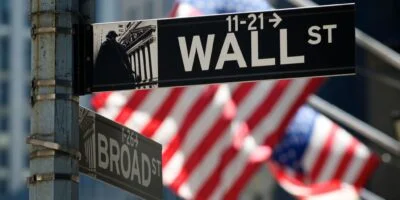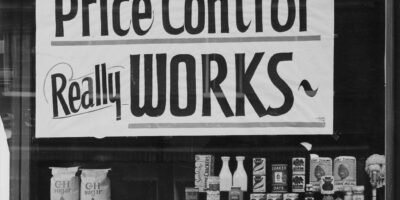Some Great Books for Stuffing Stockings

This is a lucky day for those of you who have procrastinated until the last minute to finish your Christmas shopping: I offer here a list of seven superb books published in 2019 that your open-minded friends and family members are sure to love.
Deirdre Nansen McCloskey, Why Liberalism Works. Among today’s most creative and tireless voices for an open, liberal, and humane society, McCloskey here spiritedly debunks myths too many to count. She also very effectively summarizes her thesis – developed in her much-longer Bourgeois trilogy – that key to our high and still-rising living standards is the dignity that was withheld from entrepreneurs, investors, and tradespeople until about 300 years ago.
This dignity is shockingly and distressingly rare in history, and is still absent today in parts of the world. Yet McCloskey makes a powerful case that without it there is no sustained economic growth for the masses. Without it, we’d today – or, rather, the very few of us today who would actually be alive – would be as crushingly poor as were nearly all human beings until just a few generations ago.
George Will, The Conservative Sensibility. By “conservative” Will means what McCloskey, I, and many others insist on calling “liberalism.” But call it what you will, the social, political, and economic system championed in this book is the only one that ensures freedom and prosperity to ordinary people. And George Will champions it with vigor and breathtaking learning – all conveyed with his signature eloquence.
Will is refreshingly unashamed of bestowing high praise on Washington, Jefferson, Madison, and America’s other founders. Yet he does so with a nuance and knowledge that convey nothing of nationalist bias. More generally, Will makes a strong case that the course of human events is indeed affected significantly by the character and actions of individual men and women. For Will, history is neither an unfolding of inevitabilities nor a random sequence of one darn thing after another. History is made by human choices, and it could have turned out very differently. The lesson, of course, is that the future is not written; it will be determined by our character and our individually made choices.
Arthur Diamond, Jr. Openness to Creative Destruction: Sustaining Innovative Dynamism. As does George Will, Diamond emphasizes the vital role played by individual entrepreneurs in helping to create modern mass prosperity. (The accounts of the challenges and efforts of flesh-and-blood entrepreneurs through the years is alone worth the price of this book.) And as does Deirdre McCloskey, Diamond recognizes also the importance of widespread respect for innovators and businesspeople. Making clear that modernity’s prosperity is the result of creative destruction, this book offers an unusually effective and powerful explanation of genuine market competition and a brilliant brief for its indispensability and for its goodness.
Tyler Cowen’s Big Business: A Love Letter to an American Anti-Hero. Short and fast-paced, my George Mason University colleague Tyler Cowen gives here three unapologetic and enthusiastic cheers for big business. In doing so he mows down, one after another, many of the superstitions and myths that foster in the popular mind an unwarranted suspicion of – and often a downright hostility to – firms that in markets grow large. Tyler has nothing against not-big businesses. But he performs a much-needed public service by revealing not only the special conditions and abilities that enable some businesses to become big, but also the too-often-unseen advantages that those big businesses, in turn, enable us denizens of modern commercial society to enjoy.
Virgil Storr and Ginny Choi, Do Markets Corrupt Our Morals? Nothing has ever been more fashionable among intellectuals, left and right, than to condemn markets for allegedly transforming noble, generous, and community-minded folk into contemptible, venal, and self-centered near-sociopaths. Storr and Choi go beyond convincingly showing that this allegation is wholly untrue; they reveal it to be the opposite of the truth. That which in fact does most to civilize us is markets. Markets tame our instincts to physically aggress against each other. Markets, in other words, create not only immense and widespread material prosperity, they also create a humane, generous, polite, and truly civilized society. Montesquieu’s doux commerce thesis is true after all.
Bryan Caplan and Zach Weinersmith, Open Borders: The Science and Ethics of Immigration. Being illustrated, this book is literally colorful. And although fun – indeed joyous – to read and filled with cartoons, this is no cartoon book. The authors – text by Caplan, illustrations by Weinersmith – tackle objections, big and small, to opening America’s borders much wider to immigrants. They make a compelling case that those objections collapse under close scrutiny.
I am in awe of the amount of knowledge conveyed convincingly in the book’s 214 pages of illustrated text. Statistics, history, economics, and philosophy are brought together seamlessly to put opponents of immigration on the intellectual and ethical defensive. Yet while the authors don’t shy away from endorsing completely open borders, they are neither dogmatic nor unrealistic. They understand that achieving imperfect liberalization is indeed an achievement compared to no liberalization at all, and they even give insight into how to make small steps in the direction of liberalization politically doable. This amazing book could be a game-changer in the immigration debate.
Steven Landsburg, The Essential Milton Friedman. This volume is the latest in the Fraser Institute’s wonderful – dare I say “essential”? – Essential Scholars series. In this short book of only 63 pages Landsburg cogently summarizes ten principal themes that run through the work of the late Milton Friedman (1912-2006). And despite being written, quite effectively, for readers who aren’t expert in economics, professional economists stand to profit intellectually by studying this little book closely.
Happy Holidays, everyone! May they bring you joy, and may 2020 witness a resurgence of liberty, openness, and civility.










